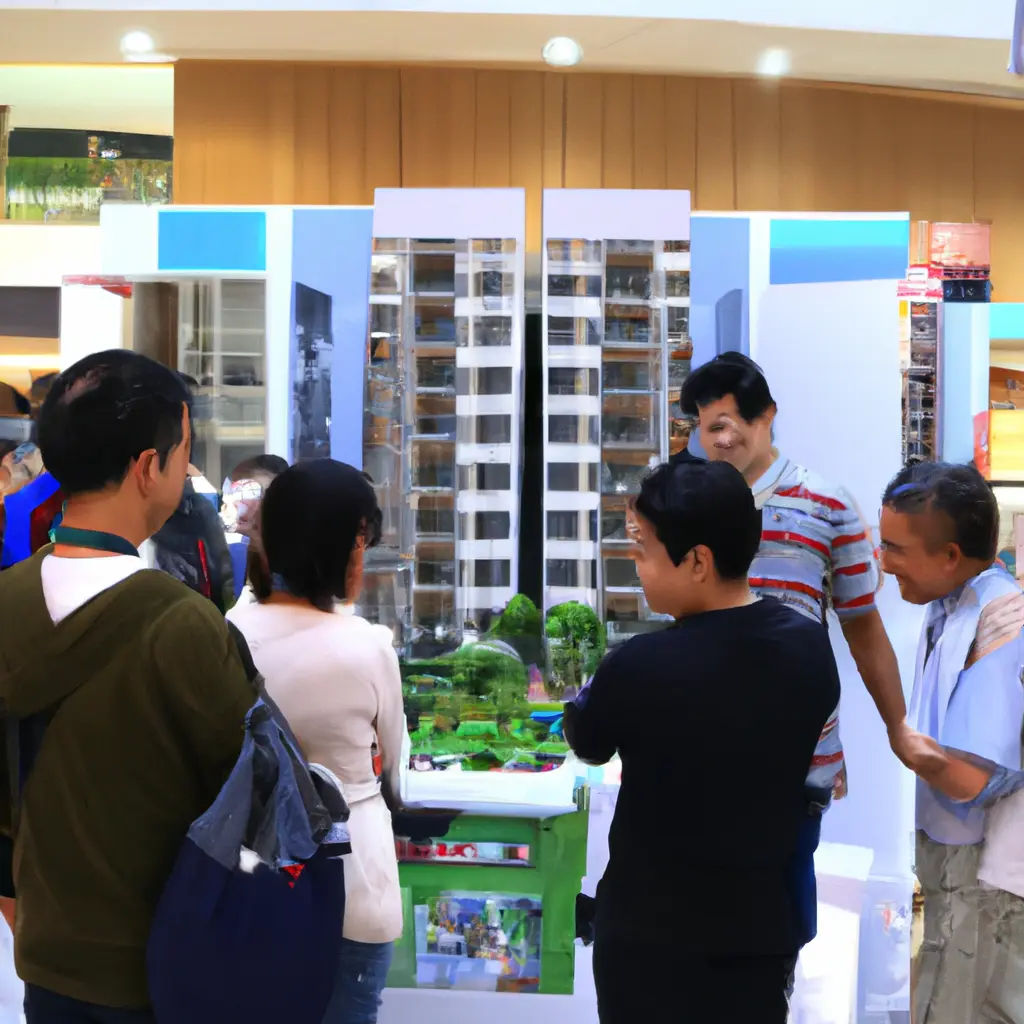Analysis of the topic: Foreigners help support the real estate market

Local demand remains weak. People are considering the skyscraper model at the real estate exhibition. Despite the economic recovery, the real estate market this year may heavily depend on foreign demand, as negative factors continue to affect domestic buyers, according to economists and real estate analysts.
Piyasak Manason, Senior Vice President of the Wealth Research Department at InnovestX Securities, stated that the growth of the real estate market this year is likely to slow down due to various financial policies. "When inflation is high, the Bank of Thailand raises interest rates to cope with it," he said. "With the end of the easing of credit restrictions affecting the demand for affordable housing, we do not expect a strong real estate market in the near future."
Mr. Piyasak stated that a gradual recovery of the economy is expected in the first half of 2023, with the tourism sector playing a significant role as a driving force for growth. The economy is projected to grow by 3% this year. However, the recovery is expected to follow a "K" shape, with a downward curve observed among low-income individuals. As a result, there has been an increase in overdue payments on loans and special loans for cars, installment purchases, and credit cards. "According to a survey of senior loan officers at the central bank, mortgage loans are expected to decline this year. This indicates risks for future demand," Mr. Piyasak said.
Other unfavorable factors include rising development costs, including expenses for construction, materials, land, and wages.
14 May 2025
13 May 2025
14 May 2025
14 May 2025

Last year, China was the largest foreign direct investor by value, with 77.4 billion baht from 158 projects. It was followed by Japan, which invested 50.8 billion baht from 293 projects, while the USA invested 50.3 billion baht from 33 projects. Along with the Chinese demand for Thai real estate, the share of Chinese individuals obtaining property ownership this year among all foreigners is expected to continue growing from 57%, which accounted for 24 billion baht last year. "The real estate market is expected to grow by 5%, and this will be organic growth," said Mr. Piyasak.
Simon Lee, the CEO of the real estate brokerage firm Angel Real Estate Consultancy, said that the wealth from Chinese buyers, spurred by the reopening of borders earlier this year, may be felt in the second half of the year.
“The market will remain weak in the first half of the year, as the number of flights will stay low,” he said. “The number of flights should increase to 2,000 from the current 1,000 per month, compared to 4,000-5,000 in the pre-pandemic period.” He noted that the behavior of Chinese buyers in the Bangkok apartment market has changed in the post-pandemic era. Before 2020, they used to buy apartments in bulk, purchasing 10-30 units per person.
“Today, they have become more selective and take longer to make decisions, buying only one unit per person,” he said. “Decision-making has become more complicated. Despite us taking them to visit more than 10 projects, they still don’t make any purchases.” Another reason is that they are disappointed with the capital income and rental yields, which do not meet expectations, Mr. Li said on Tuesday at a seminar organized by the research and consulting firm Terra Media and Consulting.
Currently, rental yields are 3-4% per year compared to 2% during the pandemic, while capital returns remain unattractive and are negative in some areas.
Comment
Popular Offers

Subscribe to the newsletter from Hatamatata.com!
Subscribe to the newsletter from Hatamatata.com!
I agree to the processing of personal data and confidentiality rules of Hatamatata











